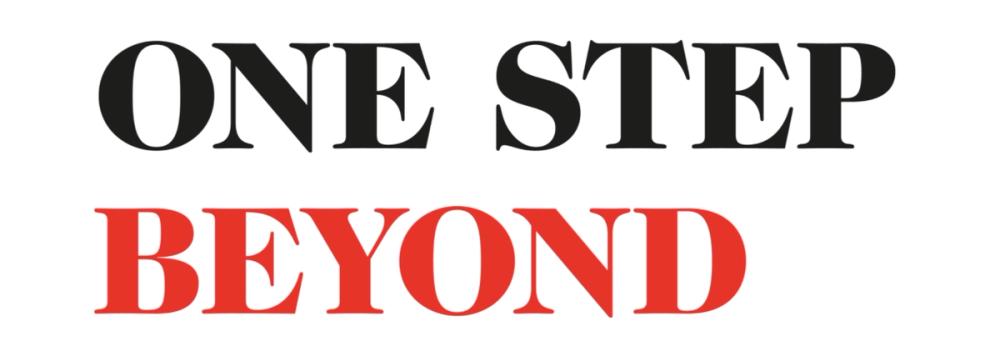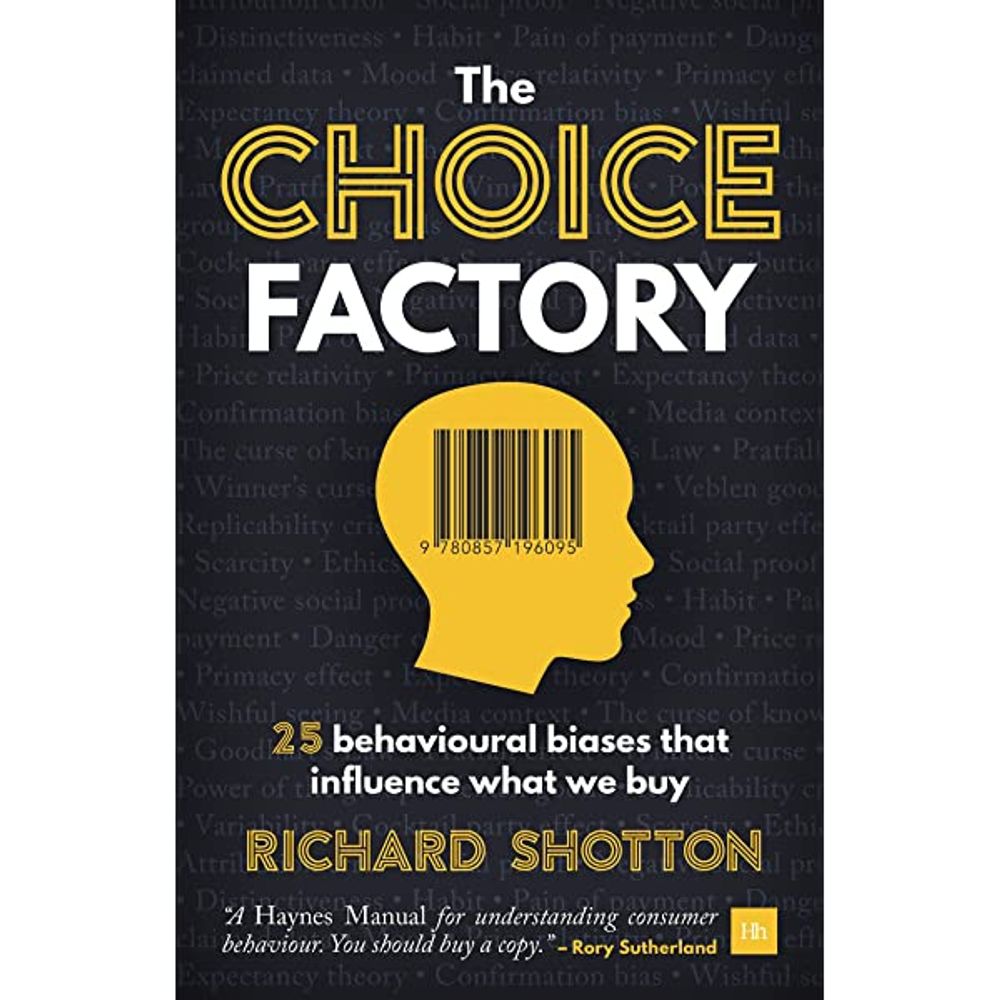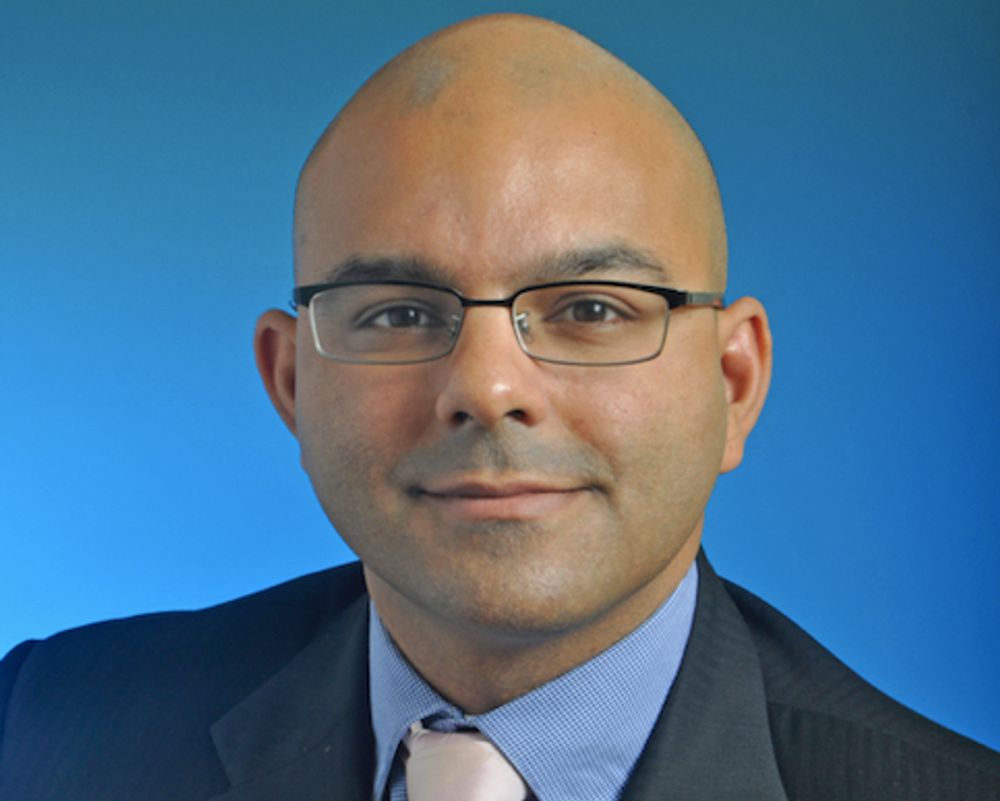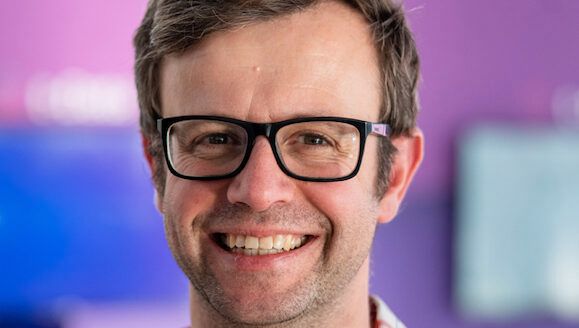Sign up to the first One Step Beyond webinar of 2022 featuring Richard Shotton, Nik Modi and a panel debate with our partners, Pix, the new online wine search site, design agency, Stranger & Stranger and wine brand business, Freixenet Copestick on consumer behaviour on February 9 between 4pm-5.30pm (GMT) by clicking here.

Whether we choose to think about it or not, every time we step into a supermarket, a bar, pub or restaurant we are being sold to. All those thousands of brands and products all dressed up in their Sunday best hoping to catch our eye and convince us to pick them up off the shelf, or from a drinks menu and part with our hard earned cash to buy them.
Quite how they do that is far more complicated and complex than we might ever imagine. Particularly if the brand, retailer or restaurateur in question has decided to apply a bit of behavioural science to the equation.
If you strip back the vast majority, if not all our buying decisions, then you can probably apply some sort of behavioural, scientific or psychological study to what made us buy what we did. Some of which is just common sense, part of what we do every day, but if you really want to transform your sales and get to know your customers’ every move then behavioural science can take you to another level. Potentially.
That’s the rough sales pitch of Richard Shotton, one of the UK’s leading behavioural science experts, who works with a large number of household brands, retailers and services to help them better present their products and then persuade more consumers to buy them.
Get it right and it can have a transformational impact on how brands and businesses perform.

Richard Shotton’s best-selling The Choice Factory has become a bible for advertising agencies
Much of Shotton’s work is encapsulated in his best-selling book ‘The Choice Factory’ (click to buy) full of case studies and examples of how he has applied behavioural science with leading brands, including Coca-Cola, Fever Tree, Facebook, Google and the AA. He will also look at how behavioural science is being used every day with in-store pricing, point of sale merchandising and how they are laid out.
Shotton has signed up to take part in the first One Step Beyond event of 2022 organised by The Buyer and Sophie Jump to help the drinks, retail and hospitality sectors better understand the changes in consumer behaviour, innovation and technology most likely to affect their industry areas. He will be presenting key insights from his research and also take part in an interview with Richard Siddle to see how they can be applied to the drinks, retail and hospitality sectors.

Nik Modi advises the world’s leading consumer goods companies on future consumer and business trends
He will then be joined by top global business analyst Nik Modi, managing director of RBC Capital Markets, who advises the world’s leading companies across drinks, packaged food, household personal care and tobacco – with a combined market value of over $1 trillion – on the long term consumer trends and changes in behaviour that they need to be planning their next five year business cycles on.
Video Extracts on Behavioural science?
To take a closer look at what Shotton means by behavioural science and how brands and retailers are using it as part of their everyday business we present a series of videos that sets out some of his key insights that he will be developing during the One Step Beyond session on February 9.
1 When do brands and retailers make the most of behavioural science?
Shotton has some big learnings for the wine and spirits sectors which put such an enormous emphasis on the detail of their products, the history, the stories, and the minutiae detail about how its products are made. This is all important information for those in the trade to do their jobs, but the vast majority of it is not suitable for consumer consumption.
In fact the more information and facts you give them the harder they will work to find short cuts to make their buying decision even quicker than normal. As he explains here.
2 Richard Shotton on how consumers rely on quick short cuts to make purchasing decisions
Shotton will also examine the huge increase there has been before and during the pandemic of subscription services and new models that brands, retailers and services are introducing to get us to sign up to long term deals. They know the value there is in getting you to sign that all important direct debit. Once you have it is a hard habit to break. Here he explains how businesses are using different pricing models to get customers to trade up to more expensive packages.
3 How behaviour science works in pricing models for monthly, weekly or daily subscriptions packages
Changing pricing models on subscription services can convince people to buy up to a package if it is presented as a daily versus yearly amount and equally can get people to buy items on line if the pricing is broken down to a “per unit” calculation rather than showing the full price.
4 How behavioural science can help subscription based business get customers to trade up to more premium packages
Here he goes on to explain how a carefully constructed pricing plan can encourage customers to trade up to more premium packages simply by introducing new levels that they know the vast majority of its customers won’t sign up for.
5 How Seedlip is the perfect example of behavioural science in action and the power of “price relativity”
Shotton has worked with a number of drinks brands and looked at how you can get customers to trade up to more expensive products by applying behavioural science techniques. Here he takes the example of Seedlip, the first non-alcoholic spirit brand, which he did not work on, but thinks is is the perfect example of behavioural science in action.
6 Richard Shotton on the “fresh start effect” and how that can dictate changes in consumer behaviour like the impact of Covid
Here Shotton analyses just what an impact Covid might have had on our long term behaviours and suggests we don’t need to wait for a global pandemic to question how we behave. Going on holiday and having our next birthday will have potentially just as big an impact on what we buy, and want to do in what is known as the “fresh start effect”.
One Step Beyond Webinar February 9 (4pm-5.30pm GMT)
Shotton will be sharing these insights and a lot more as part of his keynote talk during the next One Step Beyond session on February 9. Here are some of the themes he will look to cover:
- What is behavioural science and how it works.
- What makes consumers make the decisions they do.
- How you can influence how they make those decisions.
- Why too much information and detail can scare potential customers away.
- Why consumers don’t have the time, energy or inclination to make decisions rationally.
- How to make the buying process as easy as possible.
- How to make your prices and pricing structures more attractive.
- How to maximise subscription programmes through the right combinations of price and packages.
- How the same message can have a markedly different effect depending on when people hear it.
5 Most Important Consumer Trends
Nik Modi will then set out what he sees as being the five big macro consumer trends that are going to dictate how consumers behave and act in the coming years. That’s what really matters to major brands, retailers and businesses that are having to make long term decisions about how to grow their companies. That’s the key challenge for any serious business analyst. Predicting the future. Not what is happening now.
His work with RBC Capital Markets has identified five key macro consumer trends which he will be going through in detail at the One Step Beyond webinar on February 9. The trends are:
- The Search for Immortality
- The Power of the Individual Revolution
- Artificial Intelligence and what it means
- Hybrid Living
- The Global Balancing Act
Modi will then be followed by a panel debate featuring a line up of consumers and brand experts who will be able to assess his and Shotton’s findings and see how they could be applied in the drinks sector. The panel will include the One Step Beyond business partners the new online search and discovery site Pix, leading drinks design agency, Stranger & Stranger, and top brand business and wine producers, Freixenet Copestick.
Session Format
Here is how the One Step Beyond session will run on February 9.
4pm Intro
4.05 –4.40 Presentation by Richard Shotton
4.40 – 4.55 Interview with Richard Shotton
4.55 – 5.10 Interview with Nik Modi
5.10 – 5.30pm Panel discussion with Shotton, Modi along with chief executives and leading figures from Pix, Freixenet Copestick and Stranger&Stranger led by Richard Siddle.
- To sign up for One Step Beyond February 9 free webinar click here.
- You can buy Richard Shotton’s book on behavioural science – The Choice Factory – and read more of his work here.






























